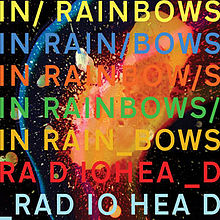
Admittedly, maybe a lot of that opinion was wishful thinking on my part. I am not going to lie to you and say that I have never enjoyed music that I didn’t directly pay for, and that I won’t do it again. As a passionate music fan in the throes of impatient anticipation of one of my favorite band’s upcoming album, if said album happened to … make itself available to me through non monetary means… I will take advantage of that opportunity. (However, it should also be noted that I’ve also pre-ordered two different versions of said album – on iTunes and CD – and bought tickets for two live performances of said band.)
I am old enough to remember pre-downloading days when paying for music was a necessity, and I believe in supporting the work of my favorite artists, so if I do happen to acquire music, I am pretty diligent about supporting them live, buying t-shirts and other random knick-knacks, because I know they’ve got rent to pay.
But I know this approach probably isn’t a policy that the majority of fans adhere to, which is why the music industry is in such a pickle to begin with. For every fan that downloads and then spends a crapload on merch, there’s about 50 fans who download music and don’t ever spend a dime. And now, in the age of Spotify and music streaming, the value of recorded music (much like the value of writing) has been eroded even more. Making music, making decent-sounding music that doesn’t sound like you recorded it in your basement or like Metallica’s “And Justice For All” costs money. Touring costs money. Every downloaded song, every song that’s streamed, is money that’s not going back into the production costs of the song that’s being enjoyed. And it adds up.
Recently, we’ve seen the two most high-profile defenders of these new models – Trent Reznor and Radiohead – back off from their support of this model. Trent Reznor signed his other band How to Destroy Angels to Columbia Records, explaining that the indie route was not a logical choice for that particular endeavor. I still think it’s possible for pay-what-you-like to work, but much like other types of creative careers, making decent money is less viable than it used to be. But what else can you do? If recorded music has lost its value, is there any other way to approach making a living from it?
I turn to a similar industry’s approach to this issue, journalism. We’re seeing many more large, esteemed news publications like the New York Times, and the Washington Post enact paywalls for their content (and a couple of publications where I’m like “really?” but that’s a post for another day). We’re at the point now where there’s an abundance of free writing on the web, and so much of it is of such poor quality, that I do believe that consumers are now willing to pay for writing that doesn’t suck and publishers are starting to look more closely at user experience and content delivery and how to offer that as a premium to consumers.
Now, the current music environment is forcing independent artists to approach their work like marketers in a way that doesn’t necessarily sit well with me. But as music fans expect a high level of quality and a personal connection from musicians and bands, labels are being forced to think about consumers in a more personal way as well. Labels are being pushed to listen to fans, pay attention to their experience as more than just consumers, nurture both artists and their fanbases in a way that was being lost. I know this sounds overly positive, possibly to a fault, but if what comes out of the past 15 years of a tanking music industry is a (tentative) embrace of a artist-focused, fan-focused mindset by labels, then maybe there’s a silver lining to all of this.




